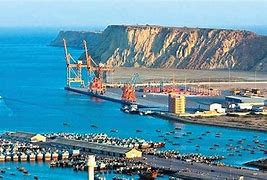Recently, the Standardization Administration of China (SAC) signed a Memorandum of Understanding (MoU) on standardization cooperation with Pakistan Standard & Quality Control Authority (PSQCA) during Pakistani PM Imran Khan’s visit to China in February.
“Standards coordination, information exchanges, and mechanisms for Pak-China cooperation on standardization shall be promoted following the signing of the MoU”, introduced Zhong Li, Director of the International Standards Cooperation Department, Standards Innovation Division, State Administration for Market Regulation (SAMR) of China, in an exclusive interview with China Economic Net (CEN).
This remarkable achievement is also included in the lately released joint statement between China and Pakistan.
According to Director Zhong Li, the communication between Pakistani and Chinese standardization bodies has been on the rise since 2016. Through joint conferences and mutual visits, continuous efforts have been made for the standards for bilateral agricultural products, anti-pandemic supplies, and quality infrastructure.
Up to now, three sessions of standardization forums have been held between China and South Asian countries including Pakistan. Research institutes are also playing a role. For example, the National South Asian Standardization (Chengdu) Research Center of China and the University of Punjab have been working together on the construction of a technological standard innovation base and the research on topics such as the impact of a standardized integrated management system on the textile, automobile and food industries in Pakistan. Chengdu Institute of Biology of the Chinese Academy of Sciences (CIB, CAS) plans to set up a demonstration site of rice breeding, cultivation and planting in Pakistan in collaboration with Garibsons (Pvt.) Ltd., one of Pakistan’s largest rice exporters.
“Standards are the ‘passports’ in international trade. Since August 2019, we have been discussing with Pakistani partners for this MoU”, Director Zhong Li told CEN.
In 2021, China-Pakistan trade volume reached $28 billion. With enhanced ties, Director Zhong Li believed that standardization will play an increasingly important role in facilitating trade and investment, enhancing connectivity, promoting sustainable development and epidemic prevention and control between China and Pakistan.
In the next step, experts from both sides will work together to develop international standards and support each other in international standardization organizations such as ISO and IEC. Mutual recognition and alignment of bilateral standards will pace up, and a standardization information platform involving countries along the Belt and Road Initiative (BRI) is also in the pipeline.
















